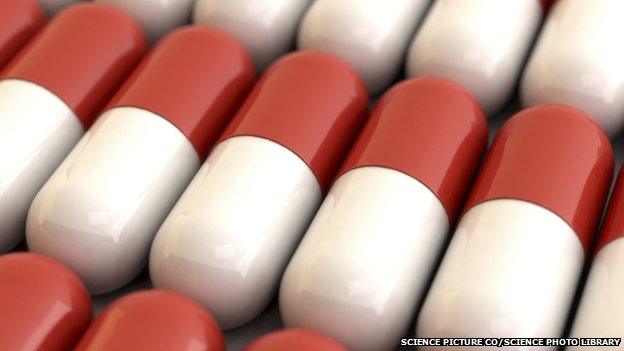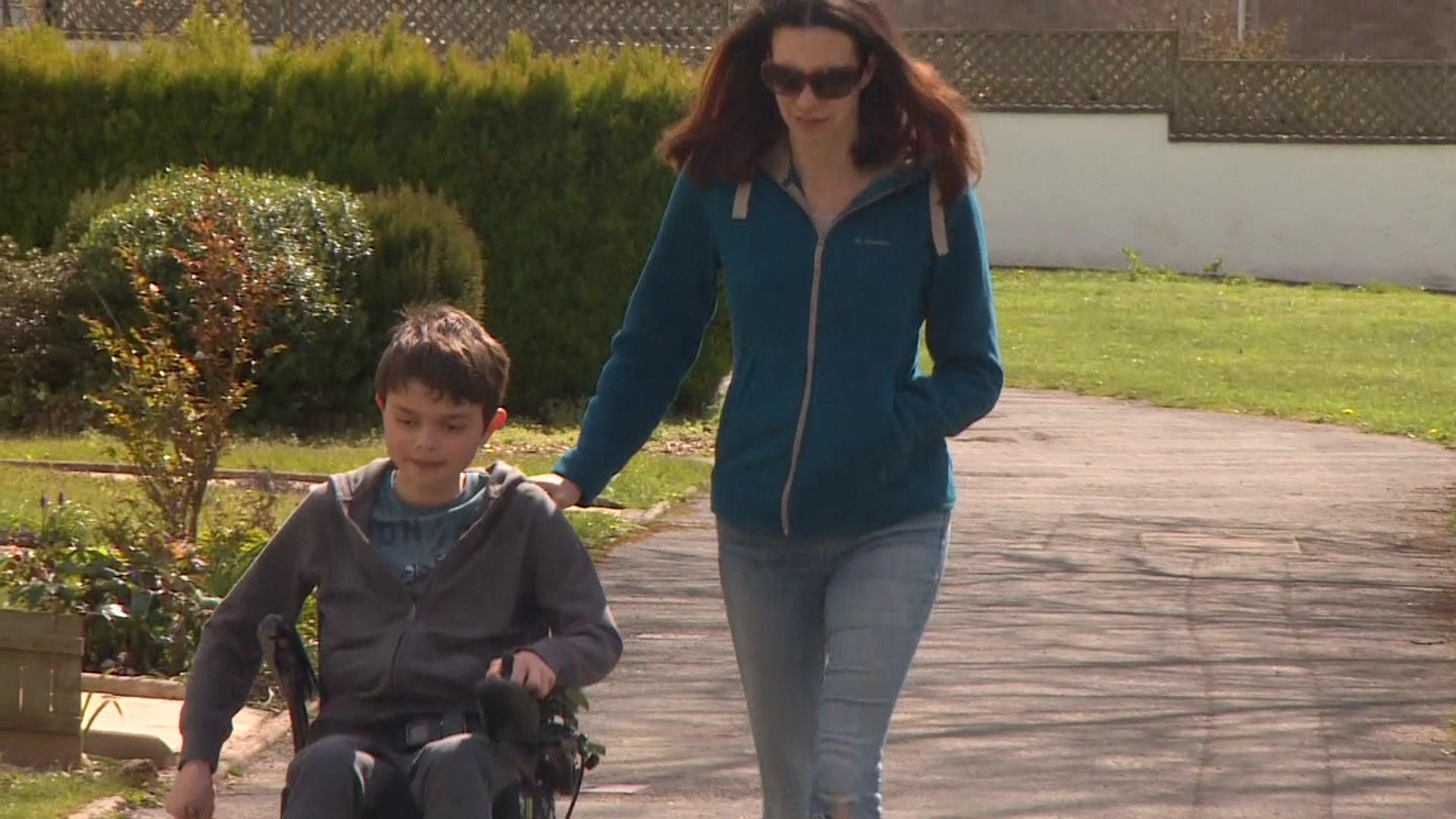Muscular dystrophy drug to be made available in Northern Ireland
- Published

Taking the drug can help prevent a life spent in a wheelchair
A drug to treat a particular form of Duchenne muscular dystrophy is to be made available in Northern Ireland.
About 10 boys are believed to be affected by the genetic disease.
It gradually causes weakness and loss of muscle function.
Health Minister Michelle O'Neill said that while only a handful of patients would benefit, it was important that the health service worked efficiently to improve their lives.
The patients who will benefit the most from this drug are those aged five years and over and who are still able to walk.
Taking Translarna, particularly before the age of 10, can help prevent a lifetime in a wheelchair.
Claire O'Hanlon from Muscular Dystrophy UK said: "This is wonderful news, in fact it is the best news.
"We in the charity and all the families in Northern Ireland are absolutely delighted. It has only come about after two years of campaigning and lobbying.
"Children will benefit from this drug - the sooner they get it the better for them. "
Expensive
Making the announcement, Miss O'Neill said while the drug was expensive, patients in Northern Ireland should be able to access approved medication that would improve their quality of life.
"For the very first time, there are drugs available that could keep children with one form of muscular dystrophy out of a wheelchair for up to seven years, and that could avoid end stage renal failure for some people," the minister said.
Patients with the condition lack normal dystrophin, a protein found in muscles, which helps to protect muscles from injury.
Those who have the disease find that their muscles become damaged and eventually stop working.
There are 2,400 children in the UK living with muscular dystrophy, but only those whose condition is caused by a particular "nonsense mutation" - about 200 children - are suitable to use Translarna.
- Published15 April 2016

- Published16 April 2016
